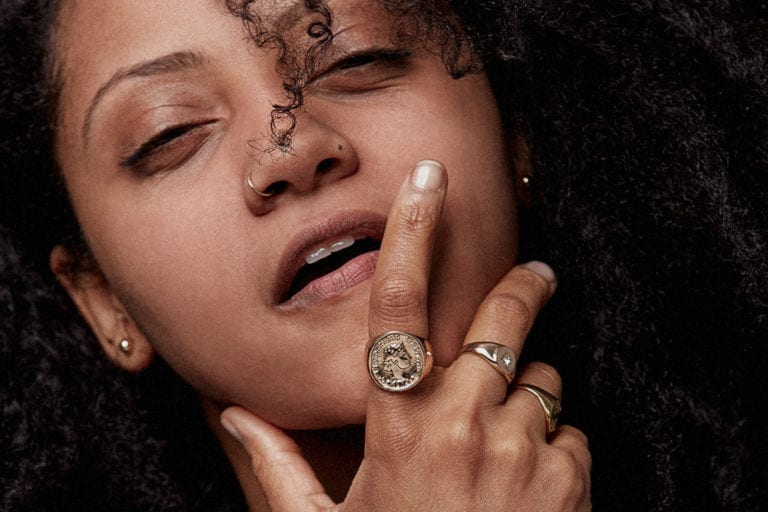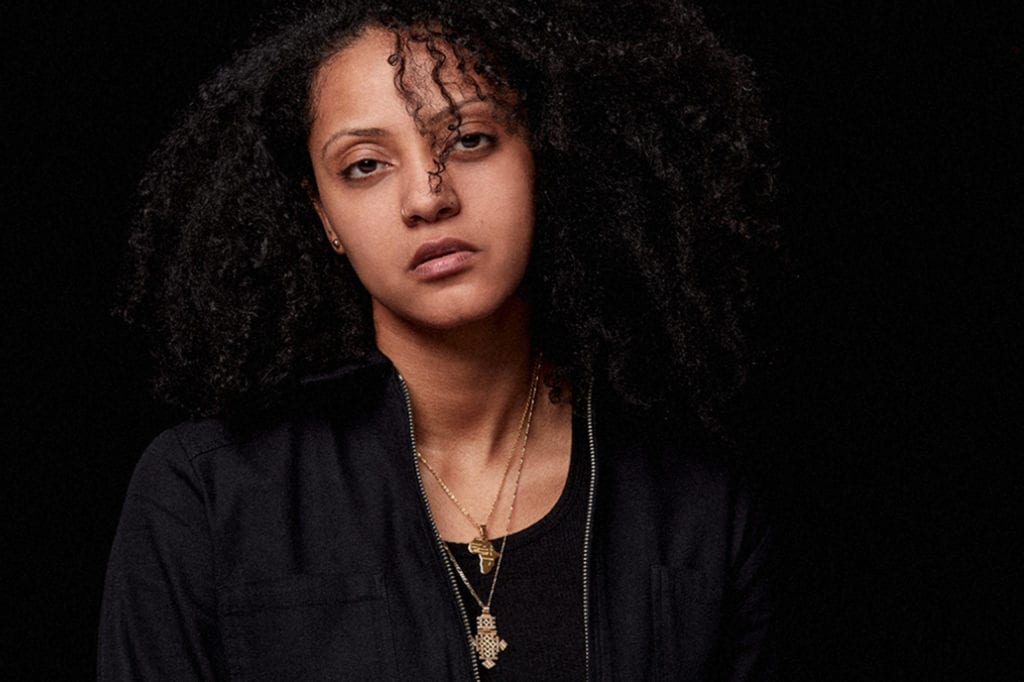Additional Information
In 2019, Naya Ali broke what was left of the ice around her, put herself in front of an audience, and reaped a genuine esteem within the hip hop family. From the Osheaga festival to M for Montreal, she was unanimously acclaimed.
What’s next?
In this context of coronaviral confinement, which is very conducive to attentive listening to the music, it goes without saying that the rapper is launching a new recording. The eight tracks on Godspeed: Baptism (Prelude) are the first part of a diptych, the second of which is scheduled for next fall.
Born in Ethiopia, Sarah “Naya” Ali immigrated with her family to Quebec when she was a child. She still lives here and can draw on a rich, diverse, composite culture. In accordance with the rules of Bill 101, she attended elementary and high school in French, then continued her college and university studies in English. She now speaks four languages (French, English, Amharic and Spanish), and is a graduate of Concordia and McGill universities.
“Before I switched my life back to music,” she says, “I worked in marketing for small businesses. Music was always a passion, but I wasn’t sure if I would make it my priority. For me, music is also a medium that goes beyond just creating, it’s a way to create movement that is useful to communities. Music is both an artistic foundation and a means of expression.”
Naya Ali discovered her artistic sensibilities as a teenager, from poetry to hip hop.
“I started writing poetry first,” she says, “I started rapping when I was about 18. I was active until I was 23, then I stopped. Why did I stop? I didn’t know myself 100 per cent, as an artist. I’d had a lot of influences, but I felt like the music I was creating wasn’t me. So I chose a safer path professionally, I concentrated on my studies in public relations and a career in marketing.”
One can only deny their true nature for so long. Still… diving into hip hop culture at the turn of one’s thirties can’t be easy.
“It’s never too late,” says Ali. “Things have to be done at the right time. If I’d got into rap in my early twenties, I probably wouldn’t have got the result I’m getting now. When, a few years later, I made that important decision, things changed very quickly.”
It seems that experience serves the rapper well.
“My studies, my life experiences, my business side, all that also plays a crucial role in my development as an artist. I’ve got a team, I’ve got a manager, I’ve got a recording contract with Coyote, I’m very involved in all aspects of my project. For me, this career’s a small business, it’s a startup where I’m the CEO. I have to make sure that my brand is respected.”
And what exactly is Naya Ali’s brand?
“I’m inspired by Kanye West in that respect – I want my music to instill confidence in people and change their minds at the same time. My music is about opening up dialogue, initiating conversations, promoting introspection and reflection, and inspiring people to become the ‘manager of their world’. I do this with both humility and confidence.”
In the studio, she works with Kevin Figs, Chase.wav, Tim Buron, Banx & Ranx…
“They are very strong producers, all from Montreal but also working abroad. I sit down with each of them, we come up with ideas, we come up with melodies, hooks, we create each song together. I’m accompanied live on stage by DJ John Brown, who’s also very talented. He makes sure that the vibe is always strong. We have a great dynamic, he and I.”
Our interviewee is outspoken, self-confident, and following firmly in the footsteps of her strongest influences. More precisely, she was educated by listening to Kanye West, Jay-Z, Kid Cudi, Eve and Lauryn Hill, to name only the American stars. It’s important for her to put her own touch on the grand scheme of hip hop, which is a huge task in itself.
African influences? Ethiopian? Naya Ali’s programme does ’t include samples or quotes from Mulatu Astatke, Gétatchèw Mèkurya and Mahmoud Ahmed. What’s the deal?
“Ethiopia is becoming a very important market,” she agrees.“ I’m from the diaspora, I’m interested in it, that’s for sure. I’ll work on it, but not in the short term. When I give my first shows in Africa, in any case, it will be a great moment for me! Right now I’m making the music I love and I’m not at all opposed to integrating African music into my own. It’s not an obligation, but in the future I could take action. The album cover, however, does have Ethiopian influences; you can see this cross on a golden background that you can see there in ceremonies and places of worship. It’s a tribute to my roots.”
The title of the recording evokes Naya Ali’s new departure.
“In Godspeed: Baptism,” she concludes, “it’s me who’s on stage, searching for myself, finding my strength. I think I’ve drawn these resources from deep within me and I begin this new chapter of my life by recalling what it took me to get to this point. It’s the light, the hope, the acquired mental strength, the positive vibes. But it is also the pressure, the anxiety, the negative emotions induced by this profession. It’s no longer a question of whether or not I’ll break through, it’s done. I now have to deal with the daily pressure and use the best strategies to ensure my growth.
“And stay strong.”

























